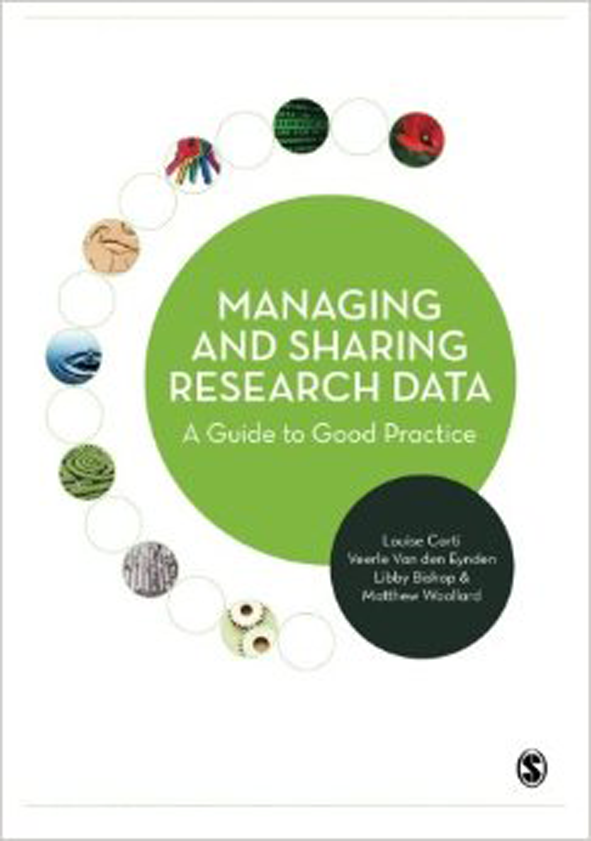This book is aimed at researchers at all levels – students, practitioners, novice and experienced researchers.
Chapter 1 “The importance of managing and sharing research data” deals with data access provided by researchers and institutions. Some arguments in favour of sharing and reasons for not sharing are presented, as well as the benefits of data sharing for researchers, research funders, scholarly community, research participants and the public.
Chapter 2 “The research data lifecycle” describes the typical activities in the research data lifecycle – discovery and planning, data collection, data processing and analysis, publishing and sharing, long-term management, and reusing data.
Chapter 3 “Research data management planning” presents an overview of some institutional requirements for data management and sharing plans for funding a research. A Data Management Checklist is suggested. Some online planning tools are listed.
Chapter 4 “Documenting and providing context for data” includes information on study-level documentation – project history, aims, objectives, hypotheses, investigators, funders; data collection methods; structure of data files; secondary data sources; data validation, checking and other quality assurance procedures; modifications of data, different versions of datasets; all kinds of changes related to data and methodology in longitudinal surveys; information on data confidentiality, access to data; publications that explain or draw on the data. Some software tools for documenting data are illustrated.
Chapter 5 “Formatting and organizing data” deals with formats best suited for data creation, data analyses, sharing of data, and converting data. Some guides for data transcription are given.
Chapter 6 is focused on storing and transferring data, data security.
Chapter 7 concerns some legal issues in sharing data (in UK) and ethical issues in sharing data (informed consent, anonymizing data, regulating access to data, etc.).
Chapter 8 discusses some rights relating to research data – intellectual property rights, copyright, database rights, licensing, and so on.
Chapter 9 “Collaborative research: data management strategies for research teams and research managers” deals with some standard procedures in team work and data management – team roles and responsibilities.
Chapter 10 discusses the opportunities and limitations of making use of other people’s research data.
Chapter 11 “Publishing and citing research data” presents some data centres, archives and repositories. Some journal policies for data publishing are discussed. Some standards for data citing are enumerated.
Each chapter is illustrated by case studies and provides some exercises. The book is accompanied by a web-site that offers additional resources.
The researchers in different scientific domains could use the guidelines in the book to improve their studies at different stages – concept, methodology, realisation, data processing, storage and popularisation.

 This is an open access article distributed under the terms of the Creative Commons
Attribution License (
This is an open access article distributed under the terms of the Creative Commons
Attribution License (

